Mohammed VI Polytechnic University

"(... the reform of the education system) must not only ensure equal and equitable access to schools and universities for all our children, but also guarantee them the right to quality education, endowed with a strong attractiveness and adapted to the life that awaits them (...) ".
Speech of His Majesty King Mohammed VI,
on the commemoration of the ‘Revolution of the King and the People’
August 20, 2012.
THE AMBITION OF THE UNIVERSITY
The Mohammed VI Polytechnic University is built around the following guiding principles:
• A resolutely ambitious project, ultimately aiming at an international class position (World Class University).
• An open innovation research university:
owhose themes seek to respond to major African challenges (food, water, energy, infrastructure, health, sustainable development ...), and to support south-south industrial partnerships; and
owhose research programs closely integrate both leading international academic partners and industrial R & D partners; and
owhose research structures benefit from a network of "living labs" capable of offering a unique offer of real-scale trials throughout the country and, more broadly, the continent.
• Excellence training programs:
osupported by leading international academic partners in a co-construction approach that reconciles the best of existing models.
opromoting "learning by doing" and practical field experiences.
oseeking the best national and international accreditations.
• A mission of innovation, valorization and service for the scientific community:
oincubation of innovative and promising projects; start-up support and technology transfer.
ocourse production and online resources; digital libraries; learning center; congress center; convention center.
• A goal of outreach on the national territory and on the continent (networking with Moroccan higher education institutions, and establishment of University campuses in several cities of the country and the continent).
• A socially just project, based on merit and excellence:
oa non-profit university, funded equally by the products of research, development and continuing education, tuition fees, and the products of its real estate assets in its various campuses ("land- grant University ")
oA very selective recruitment of students, coupled with a system of excellence scholarships and grants: a real social lift for young Moroccans or foreigners allowing the most deserving students from disadvantaged backgrounds to access the cycles of training of their choice.
• A green project, a driving force of the parallel development of the Mohammed VI Green City of Benguerir, in a "LEED" certified campus, equipped with all socio-cultural and sports facilities.
THE PROJECT
By the end of 2025, the University should regroup 12,000 students, supervised by 1,000 research professors, distributed in the teaching and research units presented below.
Engineering:
- Agriculture and fertilization (ESAFE, 2015)
- Mining, oil, processing and environment (opening planned for 2017)
- Chemistry and biotechnology (CAM, 2014)
- Renewable energies (opening planned for 2016)
- Water (opening planned for 2017)
Transversal themes:
- Industrial Management (EMINES, 2013)
- Computer science, simulation, modeling (SimLAB, 2015)
- Architecture and urban planning (opening planned for 2017)
- Health Sciences (opening planned for 2016)
Economics and Human Sciences:
- Governance, Economic and Social Sciences (FGES, 2014)
- African Business School (opening planned for 2016)
- Public Policy School (opening planned for 2016)
The Mohammed VI Polytechnic University will be installed on several campuses:
- The campus of the University, located in the Green City of Benguerir, which will host a significant portion of the institutions and services of the University.
- A campus in Rabat that hosts the Faculty of Governance and Economics and Social Sciences.
- A campus in Casablanca that will host the Business School
Practical training units will then be set up at test facilities in different cities across the country.
The various components of the University will benefit from leading, non-exclusive international partnerships, similar to those already established with Science Po Paris and Sciences Po Aix (for the Faculty of Governance, Economic and Social Sciences - FGSES), with the School of Mines of Paris (for EMINES - School of Industrial Management), with MIT - Massachusetts Institute of Technology in the United States for the components of Chemistry and Architecture, with Columbia University for the development of the Business School, and partnerships still under negotiation with Penn State University and the University of Minnessota in the United States (for the Institute of Soil Fertility, Rural Engineering and Agriculture - ESAFE), and with the Colorado School of Mines for Mines, Oil, Processing and Environment.
In addition to these major partnerships, there are nearly 70 exchange and / or cooperation agreements with institutions on all continents.
At the national level, the University relies mainly on two partnership agreements, signed with the Cadi Ayyad Universities in Marrakech and Hassan II in Casablanca, for doctoral training. About twenty other partnerships have been established in Morocco. They are the foundation upon which various joint teaching and research programs can be built, as the University's training and research projects progress.



